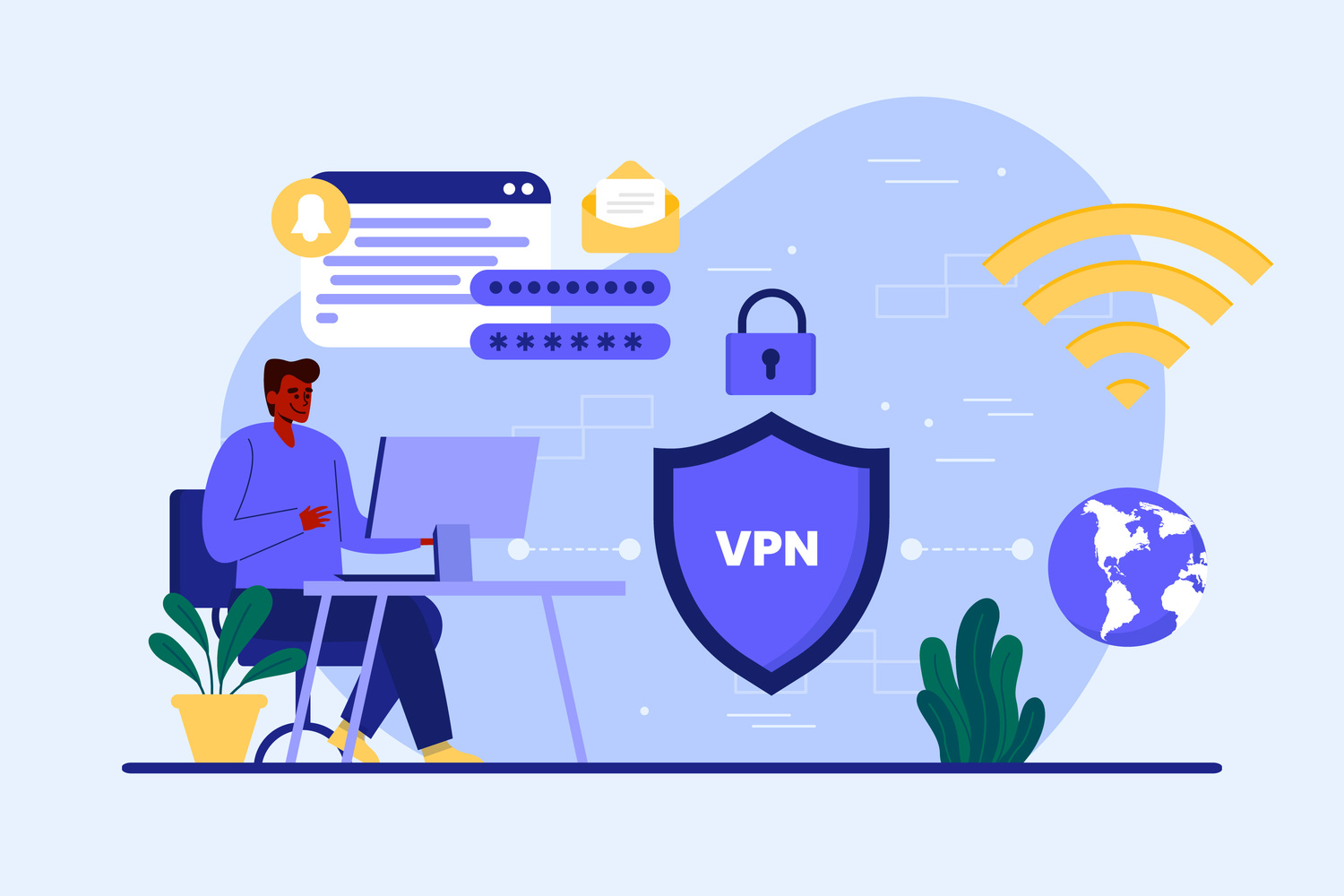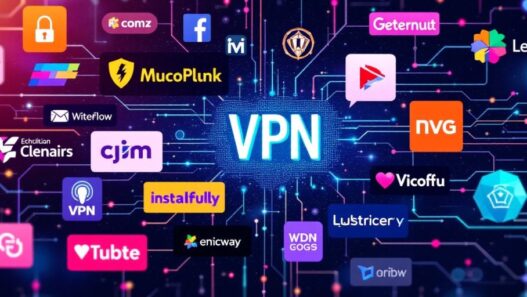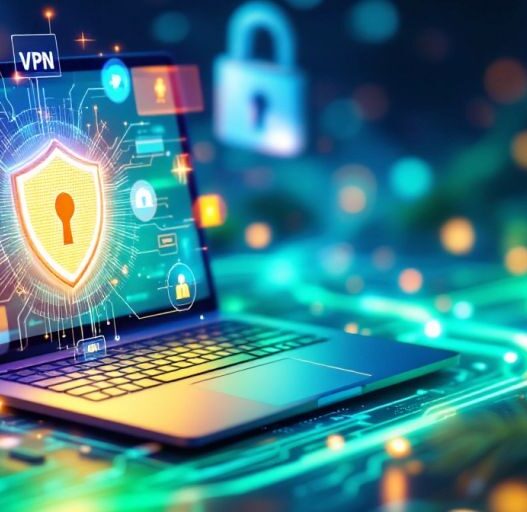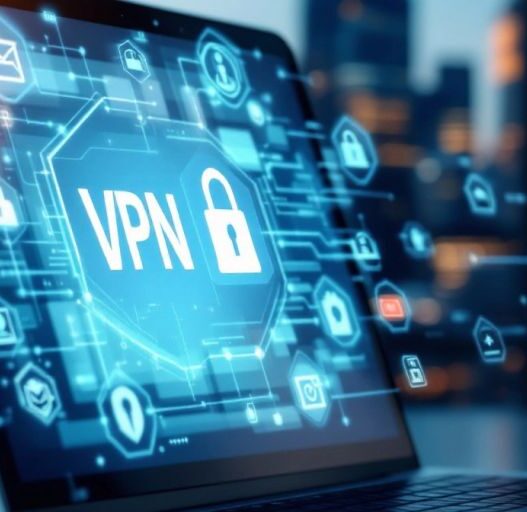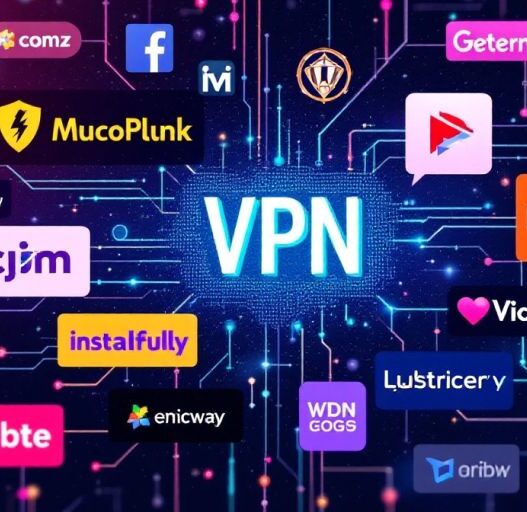Technological Advancements Shaping the VPN Industry

As we delve into the VPN industry trends for 2024, it becomes clear that technological advancements are at the forefront of shaping the future of VPNs. Virtual Private Networks (VPNs) are essential tools that provide users with secure and private internet access. They help protect personal data, especially when using public Wi-Fi, and allow users to bypass geographical restrictions on content.
AI and Machine Learning Integration
The integration of AI and machine learning into VPN services is revolutionizing how users experience online security. These technologies can analyze user behavior and adapt security measures in real-time. For instance:
- Personalized Security: AI can tailor security features based on individual browsing habits.
- Threat Detection: Machine learning algorithms can identify and respond to potential threats faster than traditional methods.
- User Experience: Enhanced algorithms can optimize connection speeds and reliability.
Decentralized VPNs
Another exciting trend is the rise of decentralized VPNs. Unlike traditional VPNs that route traffic through a single server, decentralized VPNs distribute data across multiple nodes. This approach offers several benefits:
- Increased Privacy: Reduces the risk of data breaches by eliminating single points of failure.
- Enhanced Security: Makes it harder for hackers to target a specific server.
- User Control: Empowers users to have more control over their data and privacy.
Enhanced Encryption Protocols
With the growing concern over online privacy, enhanced encryption protocols are becoming a standard feature in VPN services. These protocols ensure that user data remains secure and private. Key points include:
- Stronger Encryption: New protocols offer higher levels of encryption, making it difficult for unauthorized parties to access data.
- Faster Connections: Improved encryption methods can also lead to faster connection speeds, enhancing user experience.
- Compliance with Regulations: As privacy laws evolve, VPNs are adapting to meet these new standards, ensuring users remain protected.
The future of VPNs is not just about security; it’s about creating a seamless and user-friendly experience that prioritizes privacy and data protection.
In conclusion, the VPN market analysis for 2024 indicates that emerging VPN technologies will continue to evolve, driven by advancements in AI, decentralization, and encryption. As users become more aware of their online privacy, the demand for innovative VPN solutions will only grow. For those looking to enhance their online security, exploring top VPN services is a wise choice. Stay ahead of the curve and protect your digital life!
Market Dynamics and Growth Projections

As the digital landscape evolves, Virtual Private Networks (VPNs) are becoming essential tools for both individuals and businesses. They provide secure connections, protect user privacy, and enable access to restricted content. The VPN market is projected to experience significant growth in 2024 and beyond, driven by various factors.
Global Market Valuation
The global VPN market is currently valued at approximately $44.6 billion and is expected to reach around $87.1 billion by 2027. This growth is fueled by:
- Increased remote work and the need for secure connections.
- Rising cyber threats prompting users to seek better security solutions.
- Growing awareness of online privacy issues.
Regional Adoption Rates
Adoption rates vary significantly across regions. For instance:
- Qatar has the highest VPN adoption rate at 69.87%.
- The UAE follows closely with 61.7%.
- In contrast, South Africa has the lowest adoption rate at just 1.44%.
| Region | VPN Adoption Rate |
|---|---|
| Qatar | 69.87% |
| UAE | 61.7% |
| South Africa | 1.44% |
Impact of Remote Work on VPN Usage
The shift to remote work has significantly increased VPN usage. Key impacts include:
- Enhanced Security Needs: With more employees working from home, businesses are investing in VPNs to protect sensitive data.
- Access to Resources: VPNs allow remote workers to access company resources securely.
- Increased Demand for Reliable Connections: As remote work becomes the norm, the need for stable and secure internet connections is paramount.
The VPN industry is not just growing; it is evolving to meet the demands of a changing workforce and increasing security threats.
In conclusion, as the VPN market continues to expand, users should consider top VPN services that offer robust security features and reliable performance. Investing in a quality VPN can provide peace of mind in an increasingly digital world.
Emerging Security Challenges and Solutions
As the digital landscape evolves, VPNs are becoming essential tools for safeguarding online activities. They provide secure connections, protect user data, and enhance privacy. However, with the rise of new technologies and threats, the VPN industry faces several emerging security challenges.
AI-Driven Cyber Threats
The increasing sophistication of cyber threats is a major concern for VPN users. Attackers are leveraging artificial intelligence to create more complex and targeted attacks. This includes:
- Ransomware: Cybercriminals are not just encrypting data but also stealing it to extort victims.
- Advanced Persistent Threats (APTs): These long-term targeted attacks can compromise sensitive information over time.
- Supply Chain Vulnerabilities: Weaknesses in interconnected systems can lead to widespread damage.
Regulatory Compliance
With the growing focus on data protection, VPN providers must navigate a complex landscape of regulations. Key points include:
- GDPR: Ensuring compliance with the General Data Protection Regulation is crucial for European users.
- CCPA: The California Consumer Privacy Act impacts how VPNs handle user data in the U.S.
- Emerging Laws: New privacy laws are being introduced globally, requiring VPNs to adapt quickly.
User Privacy Concerns
As users become more aware of their online privacy, they expect VPNs to offer robust protections. Important considerations include:
- Transparency: Users want clear information on how their data is used and stored.
- No-Log Policies: VPNs must ensure they do not keep records of user activity.
- Customer Support: Reliable support is essential for addressing user concerns and maintaining trust.
In a world where cyber threats are constantly evolving, VPNs must innovate to stay ahead. The balance between security and user privacy will be critical for future success.
As we look to 2024, the VPN industry must adapt to these challenges while continuing to provide essential services. By investing in advanced technologies and maintaining transparency, VPN providers can enhance user trust and security.
Consumer Trends and Preferences
As the VPN industry evolves, understanding consumer trends and preferences becomes crucial. VPNs, or Virtual Private Networks, provide users with enhanced privacy and security while browsing the internet. They allow individuals to access restricted content, protect their data from cyber threats, and maintain anonymity online. In 2024, several key trends are shaping how consumers choose and use VPN services.
Rise of Free VPN Services
- Many users are turning to free VPN options due to budget constraints.
- However, these services often come with limitations, such as slower speeds and fewer security features.
- Users should be cautious, as some free VPNs may compromise privacy by selling data.
Popular Use Cases
- Streaming Content: Users frequently employ VPNs to bypass geo-restrictions on platforms like Netflix and Hulu.
- Online Gaming: Gamers use VPNs to reduce lag and access region-locked games.
- Remote Work: With the rise of remote work, many individuals rely on VPNs to secure their connections to corporate networks.
Demographic Insights
- Age: A significant portion of VPN users are between 16 and 34 years old, indicating a younger demographic is more privacy-conscious.
- Gender: The gender gap in VPN usage is narrowing, with 54% of users now identifying as male.
- Frequency of Use: Nearly 36% of users in the US and UK utilize their VPNs daily, highlighting a growing reliance on these services.
In a world where online privacy is increasingly at risk, VPNs are becoming essential tools for many internet users.
As consumers become more aware of their online security needs, they are likely to seek out VPN services that offer robust features and reliable performance. Top VPN services are adapting to these trends, ensuring they meet the evolving demands of their users.
In conclusion, as the VPN market continues to grow, consumers should stay informed about their options and choose services that align with their needs. Whether for streaming, gaming, or secure browsing, the right VPN can enhance the online experience significantly.
Conclusion: Embracing the Future of VPNs
As we look ahead to 2024, the VPN industry is set to undergo significant changes that will shape how we protect our online activities. With the rise of new technologies and a growing awareness of internet privacy, VPNs are becoming essential tools for many users. They not only enhance security but also provide access to content from around the world. As more people recognize the importance of online safety, the demand for reliable VPN services will continue to grow. It’s crucial for users to stay informed about these trends and consider how a VPN can improve their online experience. By embracing these advancements, we can navigate the digital world with greater confidence and security.
Frequently Asked Questions
What is a VPN and why do I need one?
A VPN, or Virtual Private Network, helps keep your internet connection safe and private. It hides your IP address and encrypts your data, making it harder for hackers and snoopers to see what you’re doing online.
Are free VPNs safe to use?
While free VPNs can be tempting, they often come with risks like slower speeds and less security. Many free services may sell your data or show you ads. It’s usually better to choose a paid VPN for better protection.
How can a VPN help with remote work?
A VPN is really helpful for remote work because it secures your connection, especially when using public Wi-Fi. It makes sure your data stays private and protects against cyber threats.
